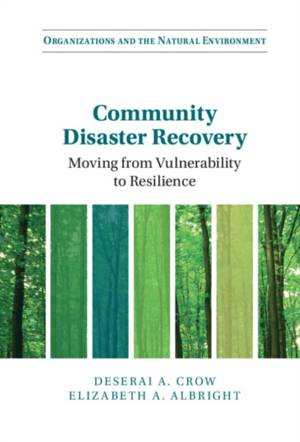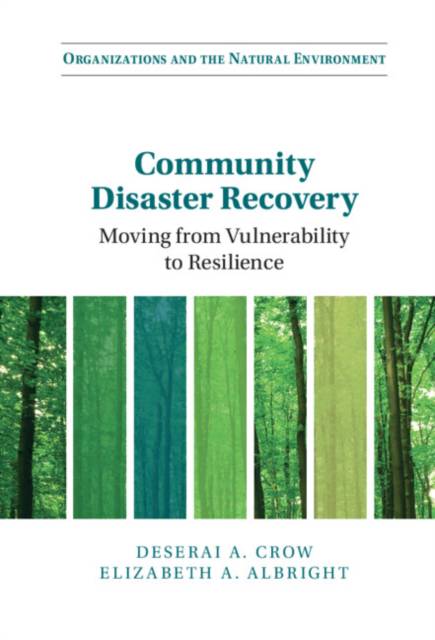
- Afhalen na 1 uur in een winkel met voorraad
- Gratis thuislevering in België vanaf € 30
- Ruim aanbod met 7 miljoen producten
- Afhalen na 1 uur in een winkel met voorraad
- Gratis thuislevering in België vanaf € 30
- Ruim aanbod met 7 miljoen producten
Zoeken
Community Disaster Recovery
Moving from Vulnerability to Resilience
Deserai A Crow, Elizabeth A Albright
€ 187,45
+ 374 punten
Omschrijving
Disasters can serve as focusing events that increase agenda attention related to issues of disaster response, recovery, and preparedness. Increased agenda attention can lead to policy changes and organisational learning. The degree and type of learning that occurs within a government organization after a disaster may matter to policy outcomes related to individual, household, and community-level risks and resilience. Local governments are the first line of disaster response but also bear the burden of performing long-term disaster recovery and planning for future events. Crow and Albright present the first framework for understanding if, how, and to what effect communities and local governments learn after a disaster strikes. Drawing from analyses conducted over a five-year period following extreme flooding in Colorado, USA, Community Disaster Recovery: Moving from Vulnerability to Resilience presents a framework of community-level learning after disaster and the factors that catalyse policy change towards resilience.
Specificaties
Betrokkenen
- Auteur(s):
- Uitgeverij:
Inhoud
- Aantal bladzijden:
- 225
- Taal:
- Engels
- Reeks:
Eigenschappen
- Productcode (EAN):
- 9781316511640
- Verschijningsdatum:
- 21/10/2021
- Uitvoering:
- Hardcover
- Formaat:
- Genaaid
- Afmetingen:
- 152 mm x 229 mm
- Gewicht:
- 566 g

Alleen bij Standaard Boekhandel
+ 374 punten op je klantenkaart van Standaard Boekhandel
Beoordelingen
We publiceren alleen reviews die voldoen aan de voorwaarden voor reviews. Bekijk onze voorwaarden voor reviews.











